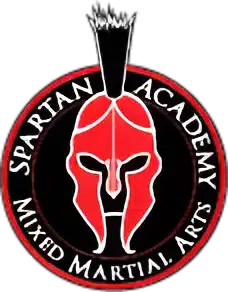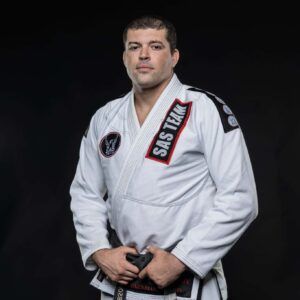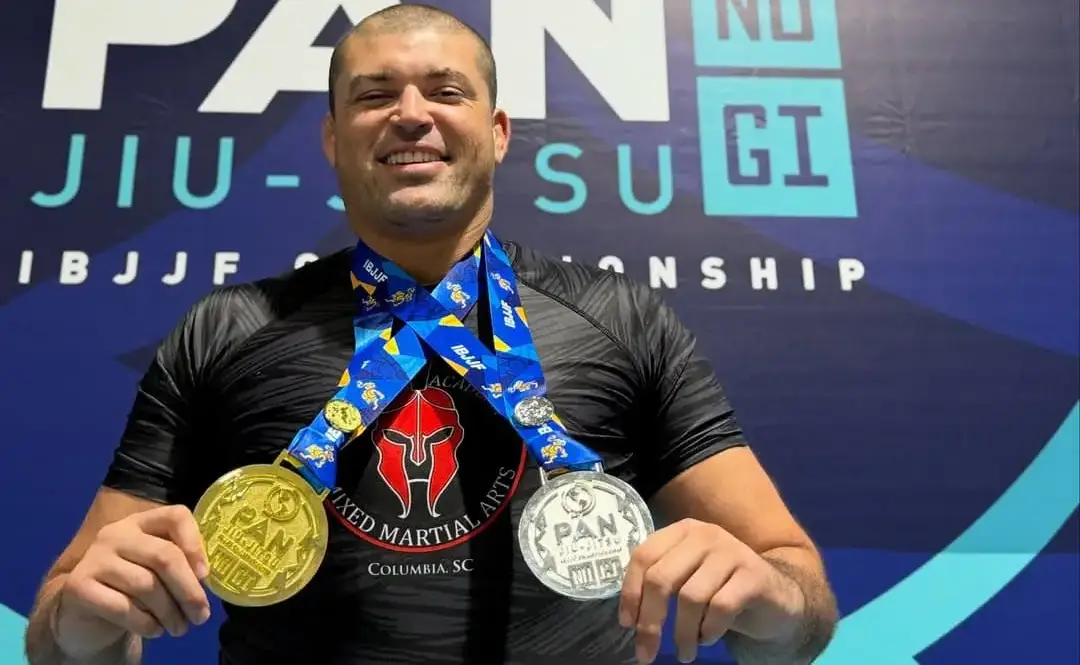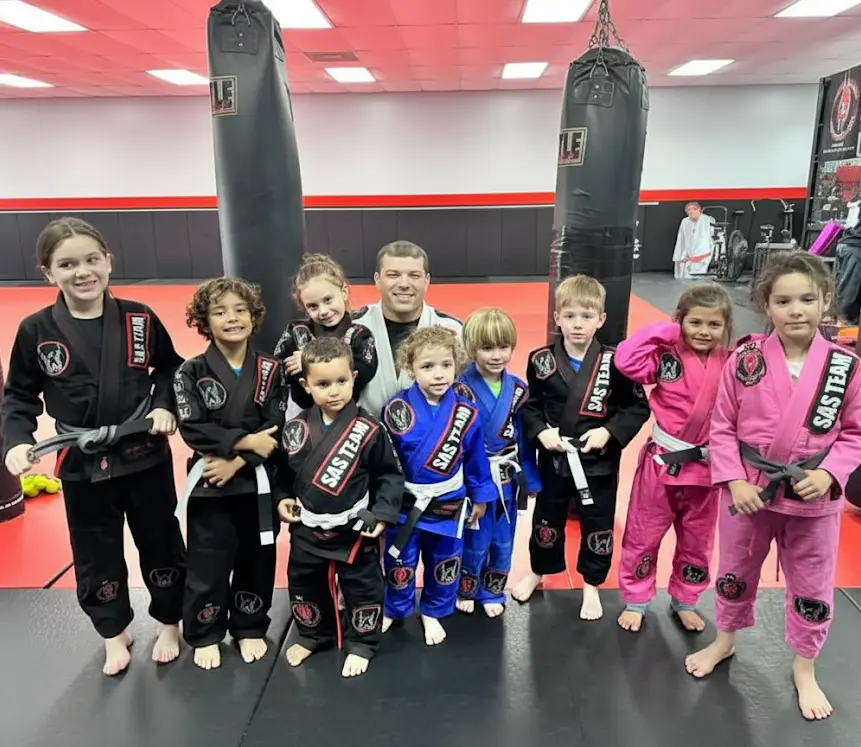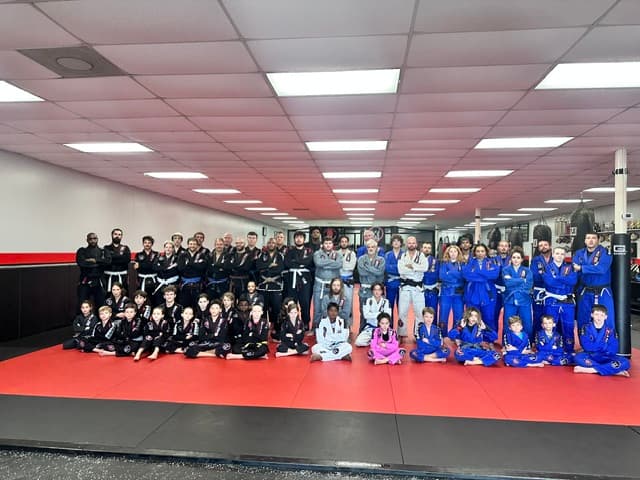Learning BJJ for self-defense takes 6-12 months of consistent training (2-3 times per week) to develop effective defensive skills, with basic survival techniques emerging within the first 3 months and practical self-defense capabilities solidifying after one year of dedicated practice.
How long does it take to learn BJJ for self-defense is one of the most common questions beginners ask before stepping onto the mats. While everyone progresses differently, you might be surprised to learn that basic self-defense skills can develop faster than you think. Let’s explore realistic timelines and what you can expect on your Brazilian Jiu-Jitsu journey.
Table of Contents
ToggleBJJ basics: What you’ll learn in your first months
When you first start training Brazilian Jiu-Jitsu, you’ll focus on fundamental movements and basic positions that form the foundation of effective self-defense. Most beginners spend their initial months learning how to move safely on the ground and understanding basic body mechanics.
Essential Positions You’ll Master
Your first few months will center around learning the guard position, where you’re on your back with your legs controlling an opponent. This is crucial for self-defense because it allows a smaller person to control and neutralize a larger attacker. You’ll also learn the mount and side control positions, which teach you how to maintain control if you end up on top.
Basic escapes become second nature during this period. The hip escape (also called shrimping) is one of the most important movements you’ll practice. This technique helps you create space and get out of bad positions, which is essential for self-defense situations.
Fundamental Techniques for Safety
Your instructor will teach you simple but effective submissions like the rear naked choke and armbar. While these might sound aggressive, learning them helps you understand how to defend against them. You’ll also practice basic takedown defense to stay on your feet when possible.
Frame building becomes instinctive as you train. This involves using your arms and legs to create barriers between you and an attacker. These frames give you space to escape or counter-attack, making them invaluable for real-world self-defense.
Building Your Foundation
During your first three to six months, expect to drill the same movements repeatedly. This repetition builds muscle memory that kicks in during stressful situations. You’ll notice improved body awareness and better balance, even outside the gym.
Most students can perform basic escapes and defensive positions confidently after about four months of consistent training. While you won’t be ready to handle every situation, you’ll have solid fundamentals that can help you stay safe and create opportunities to escape dangerous encounters.
Timeline for developing effective self-defense skills
Most students can handle basic self-defense situations after 6 to 12 months of consistent Brazilian Jiu-Jitsu training. This timeline assumes you’re training at least twice per week and actively participating in sparring sessions. Your progress depends heavily on how often you practice and how well you absorb the fundamentals.
First 3 Months: Building Survival Skills
During your first three months, you’ll develop basic survival instincts on the ground. You’ll learn to stay calm when someone is on top of you and understand how to protect yourself from submissions. While you won’t be offensive yet, you’ll start recognizing dangerous positions and know how to call for help or create space to escape.
By month three, most students can successfully escape from basic holds and understand how to use their legs defensively. These skills alone can make a significant difference in a real confrontation, giving you precious seconds to get away or call for assistance.
6-Month Mark: Defensive Confidence
After six months of training, your defensive skills become much more reliable. You can escape from most common attack positions and maintain better control of distance and positioning. This is when many students feel confident enough to handle untrained attackers in ground situations.
Your ability to stay calm under pressure improves dramatically during this period. Sparring with different training partners teaches you to adapt quickly and think clearly even when someone is trying to control or submit you.
One Year: Practical Self-Defense Ability
At the one-year mark, most dedicated students have developed solid self-defense capabilities. You’ll understand how to use leverage effectively, can execute basic submissions when needed, and have the conditioning to last through a physical confrontation.
Your movement becomes more natural, and you start anticipating attacks before they happen. This predictive ability is crucial for self-defense because it allows you to counter or escape before getting into truly dangerous situations. Many students at this level can handle multiple scenarios and feel genuinely confident in their ability to protect themselves.
Factors that influence your BJJ learning speed
Your progress in Brazilian Jiu-Jitsu depends on several key factors that can either speed up or slow down your learning. Understanding these elements helps you set realistic expectations and optimize your training approach for faster skill development.
Training Frequency and Consistency
Students who train 3-4 times per week typically progress twice as fast as those who only train once weekly. Consistent practice allows your body to retain muscle memory and build upon previous lessons. Taking long breaks between sessions forces you to relearn basics, which significantly slows your overall progress.
Quality matters more than quantity, though. Two focused training sessions per week often produce better results than four distracted ones. Your body also needs time to recover and process new information, so rest days are essential for optimal learning.
Physical Attributes and Background
Your previous athletic experience plays a major role in how quickly you adapt to BJJ movements. Wrestlers, gymnasts, and dancers often pick up techniques faster because they already understand body awareness and movement patterns. However, complete beginners can still excel with dedication and proper instruction.
Age affects learning speed, but not as much as people think. Younger students might have better flexibility and recovery, while older practitioners often show superior focus and technical understanding. Your natural flexibility, strength, and coordination influence how easily you perform certain techniques.
Learning Style and Mental Approach
Some students learn best through visual demonstration, while others need hands-on practice or detailed verbal explanations. Identifying your learning style helps you absorb techniques more efficiently. Students who ask questions and seek feedback typically improve faster than those who train silently.
Your mental attitude significantly impacts progress. Students who embrace being uncomfortable and view mistakes as learning opportunities advance quicker. Fear of sparring or getting submitted can slow down development, while those who engage fully in controlled practice sessions see rapid improvement.
Training Partners and Environment
The quality of your training partners directly affects your learning speed. Rolling with higher-level students exposes you to advanced techniques and timing, while training with fellow beginners allows you to practice fundamentals safely. A mix of both accelerates your development.
Gym culture and instruction quality matter enormously. Schools that emphasize technique over aggression create better learning environments. Experienced instructors who provide personalized feedback help students correct mistakes quickly and develop proper habits from the beginning.
Start Your BJJ Self-Defense Journey Today at Spartan Academy
Learning Brazilian Jiu-Jitsu (BJJ) for self-defense is a rewarding journey that builds both physical skills and mental confidence. While basic defensive abilities can develop within 6-12 months of consistent training, remember that everyone progresses at their own pace.
The key factors that influence your learning speed include training frequency, your physical background, learning style, and the quality of instruction you receive — and that’s where Spartan Academy excels. Most importantly, staying consistent with your practice and maintaining a positive attitude toward learning will accelerate your progress significantly.
Whether you’re looking to protect yourself or simply want to build confidence, BJJ offers practical skills that work in real-world situations. The techniques you learn in your first months at Spartan Academy can make a meaningful difference in your personal safety.
Don’t wait to start your training. Take that first step toward developing effective self-defense skills that will serve you for life by joining Spartan Academy today!
